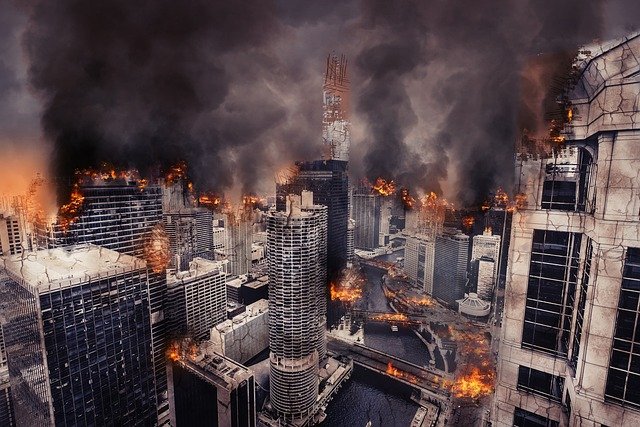
Ceasefires have dominated UK headlines in recent months, as conflicts from the Middle East to Eastern Europe continue to shape global security and humanitarian priorities. For many in Britain, the word “ceasefire” has become synonymous with both relief and frustration—a pause in violence that offers hope, but often falls short of delivering lasting peace. As the world watches the latest developments unfold, understanding the significance, challenges, and UK response to ceasefires is more important than ever.
The Latest Ceasefire in Focus: Iran and Israel
This week, news of a ceasefire between Iran and Israel captured the attention of the UK and the world. The agreement, brokered after 12 days of intense conflict and heavy casualties, was confirmed by both governments on Tuesday morning. The UK government welcomed the announcement, expressing hope that this truce would hold and prevent further escalation in a region already fraught with instability.UK officials, including Pat McFadden, highlighted the fragility of the situation, noting that while the ceasefire is a positive step, its durability remains uncertain. The UK also began evacuating its citizens from Israel, with around 1,000 requesting assistance, underscoring the real impact of conflict on British nationals abroad.
The ceasefire followed a night of deadly strikes, with at least four people killed in Israel and retaliatory Israeli airstrikes across Iran. Prime Minister Benjamin Netanyahu stated that Israel had achieved its military objectives, including neutralising perceived threats from Iran’s nuclear and ballistic capabilities. Iran, for its part, signalled it would halt attacks if Israel ceased its “illegal aggression”.
Ceasefires in the Middle East: Gaza and Lebanon
The Iran-Israel ceasefire is only the latest in a series of high-profile truces. Earlier this year, a significant ceasefire was reached between Israel and Hamas after months of devastating conflict in Gaza. The agreement, described by Prime Minister Sir Keir Starmer as “long-overdue news,” included provisions for the release of hostages and Palestinian detainees, as well as the return of hundreds of thousands of displaced Gazans to their homes.UK leaders from across the political spectrum welcomed the deal, emphasising the need for humanitarian aid and a long-term political solution. The government has consistently called for a sustained ceasefire, the release of all hostages, and a credible path to a two-state solution, reflecting the UK’s longstanding commitment to peace in the region.
A separate ceasefire was also brokered between Israel and Hezbollah in Lebanon, ending 14 months of hostilities that had displaced more than a million people. The UK played a key diplomatic role, being the first G7 nation to call for an immediate ceasefire and working with allies to support peace efforts. Foreign Secretary David Lammy stressed the need for a long-term settlement consistent with UN Security Council Resolution 1701, and reiterated the UK’s support for UN peacekeeping operations in the region.
The UK’s Role and Response
The UK’s response to recent ceasefires has been robust and multifaceted. The government has used its diplomatic influence to press for immediate truces, humanitarian access, and the protection of civilians. British officials have engaged in high-level talks with partners across Europe, the United States, and the Middle East, leveraging the UK’s “special relationship” with the US and its strong ties with regional actors to promote peace initiatives.
Prime Minister Starmer and Foreign Secretary Lammy have both underscored that ceasefires must be more than temporary pauses—they should be stepping stones to lasting political solutions. The UK has advocated for international monitoring mechanisms, the safe return of displaced people, and the rebuilding of war-torn communities. In the case of Gaza, the government has called for the formation of an international governing body to oversee reconstruction and ensure stability.
Ceasefires Beyond the Middle East: Ukraine
Ceasefires are not limited to the Middle East. The ongoing war in Ukraine remains a top concern for British policymakers. Despite repeated offers of unconditional ceasefires from Ukraine, Russia has continued its military campaign, resulting in thousands of civilian casualties. The UK has rallied international support for Ukraine, convening coalitions and providing military aid, while urging Russia to accept a ceasefire and engage in serious negotiations for peace.
Prime Minister Starmer recently convened a major summit in London, bringing together leaders from Europe, North America, and the Asia-Pacific to back a just and lasting peace in Ukraine. The UK’s message has been clear: ceasefires are essential to stop the killing and create space for political dialogue, but must be backed by strong security arrangements and international oversight.
The Challenges of Making Ceasefires Last
While ceasefires offer hope, they are notoriously difficult to sustain. Recent truces have often been marred by violations, mistrust, and continued violence. The Iran-Israel ceasefire, for example, was reportedly breached within hours, with both sides accusing each other of aggression. In Gaza, attempts to move from temporary pauses to permanent peace have repeatedly stalled, as underlying political and security issues remain unresolved.
Experts point out that for ceasefires to succeed, they must be accompanied by credible enforcement mechanisms, humanitarian access, and a clear roadmap to political settlement. The UK has pushed for these elements in its diplomatic efforts, recognising that without them, ceasefires risk becoming little more than brief respites in ongoing cycles of violence.
Conclusion:
Ceasefires remain a vital first step towards ending conflicts and alleviating human suffering. However, as recent events demonstrate, they are fragile and must be carefully managed to build trust and pave the way for lasting peace. The UK’s commitment to diplomacy, humanitarian support, and international cooperation will be crucial as the world navigates these turbulent times.
As ceasefires continue to make headlines, Britons can take some comfort in knowing that their country is at the forefront of efforts to turn fragile truces into genuine opportunities for peace. The path is challenging, but the alternative—endless cycles of violence—remains unacceptable. The hope is that, with sustained effort and international resolve, ceasefires will become more than just pauses in fighting; they will be the foundation of a more peaceful future.
To read more, click here
